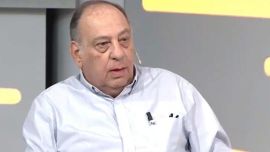The provincial backlash against President Mauricio Macri’s post-PASO economic measures came to a head this week when governors across the entire opposition spectrum assembled at the Federal Investments Council on Wednesday to issue a stern statement, claiming that the tax cuts would jeopardise the payment of salaries at the end of this month.
The governors were at pains to stress that they did not question the relief measures as such – many of them have been repeatedly demanded by opposition legislators in Congress in recent years – but rather the “unilateral” and “arbitrary” way in which they had been funded without offering the provinces any compensation. The statement, signed by 19 out of 24 governors, described the moves as “harmful” to their regional finances.
The opposition governors argued that the measures were unconstitutional, not only because they expropriated provincial revenues for national ends but also because the tax changes had not been run through Congress while lying outside both the 2019 Budget and the Fiscal Pact.
“We are in grave danger of not being able to meet our current expenses, the fulfillment of wage obligations, the provision of essential services and the preservation of social peace in each of the states we represent,” the text read.
That same day the oil-producing provinces of Neuquén, Río Negro and La Pampa went to the Supreme Court to argue that the emergency decree freezing fuel prices for 90 days (also in the package) was likewise unconstitutional, joined the next day by Santa Cruz.
Wednesday’s gubernatorial huddle included not only Peronist governors from every corner of the country and every shade of opinion ranging from Salta’s conservative Juan Manuel Urtubey to Santa Cruz’s Alicia Kirchner, but also from beyond the fold, such as Santa Fe’s socialist Miguel Lifschitz and the Neuquén Popular Movement’s Omar Gutiérrez.
Meanwhile, the emergency decree freezing petrol prices was slammed by a business think tank well ahead of the oil-producing provinces.
On the same day as the decree’s publication in the Official Gazette the previous Friday, IDEA (Instituto para el Desarrollo Empresarial de la Argentina) issued a communiqué saying that the move “sets a bad precedent which jeopardises all the intense work which has been done from the national government downwards with the aim of integrating us into international trade,” also arguing that there were no “extraordinary circumstances” to justify an emergency decree to freeze fuel prices at pre-PASO levels on the basis of an exchange rate of 45 pesos per dollar.
“Investments and job creation
require clear and predictable rules
sustained over time while protecting free trade and property rights”
continued the IDEA executives,
who concluded that they would
support “whoever wins in October” (a preference which would not
seem to favour Macri on the basis
of the PASO primary results). related news





















Comments